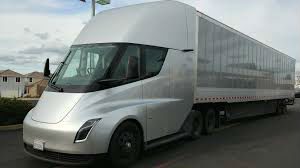Key Takeaways
- The FMCSA plans to publish its speed limiter rule proposal in May 2025.
- The rule would apply to commercial vehicles over 26,000 lbs with electronic engine control units (ECUs).
- A national maximum speed is expected to be set — likely between 60–68 MPH.
- Carriers may need to audit ECUs, retrain drivers, and update safety protocols.
- Noncompliance with the FMCSA speed limiter rule could impact CSA scores and lead to citations once the rule is enforced.
What Is the FMCSA Speed Limiter Proposal?
The Federal Motor Carrier Safety Administration (FMCSA) is currently working on a new federal mandate that would make it a requirement for certain commercial motor vehicles (CMVs) to function with activated electronic speed limiters.
This new rule plays a part of a broader move to decrease crash severity, enhance highway safety regulations, and regulate auto operations across the American trucking industry.
What Vehicles Are Impacted by the FMCSA Speed Limiter Rule?
The new FMCSA speed limiter rule is applicable to trucks that have a gross vehicle weight rating (GVWR) of 26,000 lbs or above. The rule particularly focuses on trucks that possess electronic control units (ECUs), which are capable of managing speed.
When Will the Speed Limiter Rule Go Into Effect?
The FMCSA has recently revealed that the FMCSA speed limiter rule will be published by May 2025. The deadlines for the enforcement and compliance of the speed limiter rule would follow.
What Is the Speed Limit Being Proposed by the FMCSA?
Although the FMCSA has not yet finalized an exact number, previous versions of the speed limiter mandate suggest a national speed cap between:
- 60 MPH
- 65 MPH
- 68 MPH
Once the exact number is confirmed, the above speed cap would override state-specific speed limits for the impacted CMVs.
Why Does the FMCSA Want Speed Limiters?
Both the FMCSA and the National Highway Traffic Administration (NHTSA) advocate for speed limiters based on safety and environmental considerations. Their aims include:
- Decreasing the severity of CMV-related crashes
- Reducing fuel consumption and optimizing long-distance efficiency
- Minimizing aggressive driving behaviors and speed variation on freeways
- Improving fleet Compliance, Safety, Accountability (CSA) metrics
What Impacts Will the FMCSA Speed Limiter Rule Have on Carriers?
Delivery Timelines May Increase
The decrease in maximum speed levels can increase transportation time and impact delivery windows. This impact of FMCSA speed limiters on delivery can particularly affect expedited shipping or long-haul trips.
Safety Scores Will be Prominent
Noncompliance with an FMCSA truck speed limiter requirement could result in CSA score penalties, which impact your operational authority and inspection risk.
Truck Maintenance and Technology May Need to be Updated
In order to remain compliant with the FMCSA updates in 2025, your trucks must have well-maintained ECUs that can be optimized to enforce a maximum speed limit. If not, then you may need updates or new components.
How Should Trucking Companies Prepare for the FMCSA Speed Limiter Rule in 2025?
Preparing to maintain compliance with the FMCSA speed limiter rule from now will reduce excess cost and risk later on. Here’s how to remain compliant with the new federal trucking regulations and keep fleet safety in 2025:
1. Audit Your Equipment
Go over which trucks in your fleet already possess ECUs, as well as if they’re compatible with future trucking regulation changes.
2. Follow the Rulemaking Timeline Closely
The official FMCSA updates are expected to be published in May 2025. Carriers should be prepared for possible implementation at least 6-24 months after publication.
3. Inform Your Team
Educate your safety, operations, and drivers teams to prepare for potential trucking regulation and speed policy changes.
How DOT Operating Authority Can Help You
We at DOT Operating Authority specialize in helping trucking companies maintain compliance with new FMCSA regulations, as well as proposed rules like this one.
Our team will help you:
- Assess your fleet’s preparedness
- Organize the necessary documentation for regulatory inspections
- Maintain awareness of FMCSA updates
- Manage DOT filings (BOC-3, HUT, IFTA, MCS-150, and more)
Together, let’s make sure your authority and team are prepared.
Contact our DOT compliance team today to stay informed about the speed limiter rule, as well as for FMCSA compliance assistance.
Frequently Asked Questions
Has the FMCSA speed limiter rule gone into effect?
No. The new FMCSA speed limiter rule is currently in proposed status. The publication of the rule is expected in May 2025.
Do I need an ECU for speed limiter compliance?
The rule will mainly apply to CMVs that are over 26,000 lbs and have compatible ECUs. Depending on technical limitations, older trucks may be exempt from being subject to the rule.
Which carriers will the FMCSA updates apply to?
The new rule primarily targets interstate commerce, but individual states may be applicable to implement similar standards for local operations.
What happens if I don’t comply with the new speed limiter rule?
Noncompliance may affect your CSA scores and heighten the risk of inspections or citation once the rule is fully implemented.
Ready to Work with DOT Operating Authority?
The new FMCSA speed limiter rule will likely affect the future of trucking regulations and requirements. Whether you operate one truck or manage a whole fleet, staying informed on what’s in the works, and planning for it, can lead to your operation’s success.
DOT Operating Authority is here to help you stay ready in 2025.




